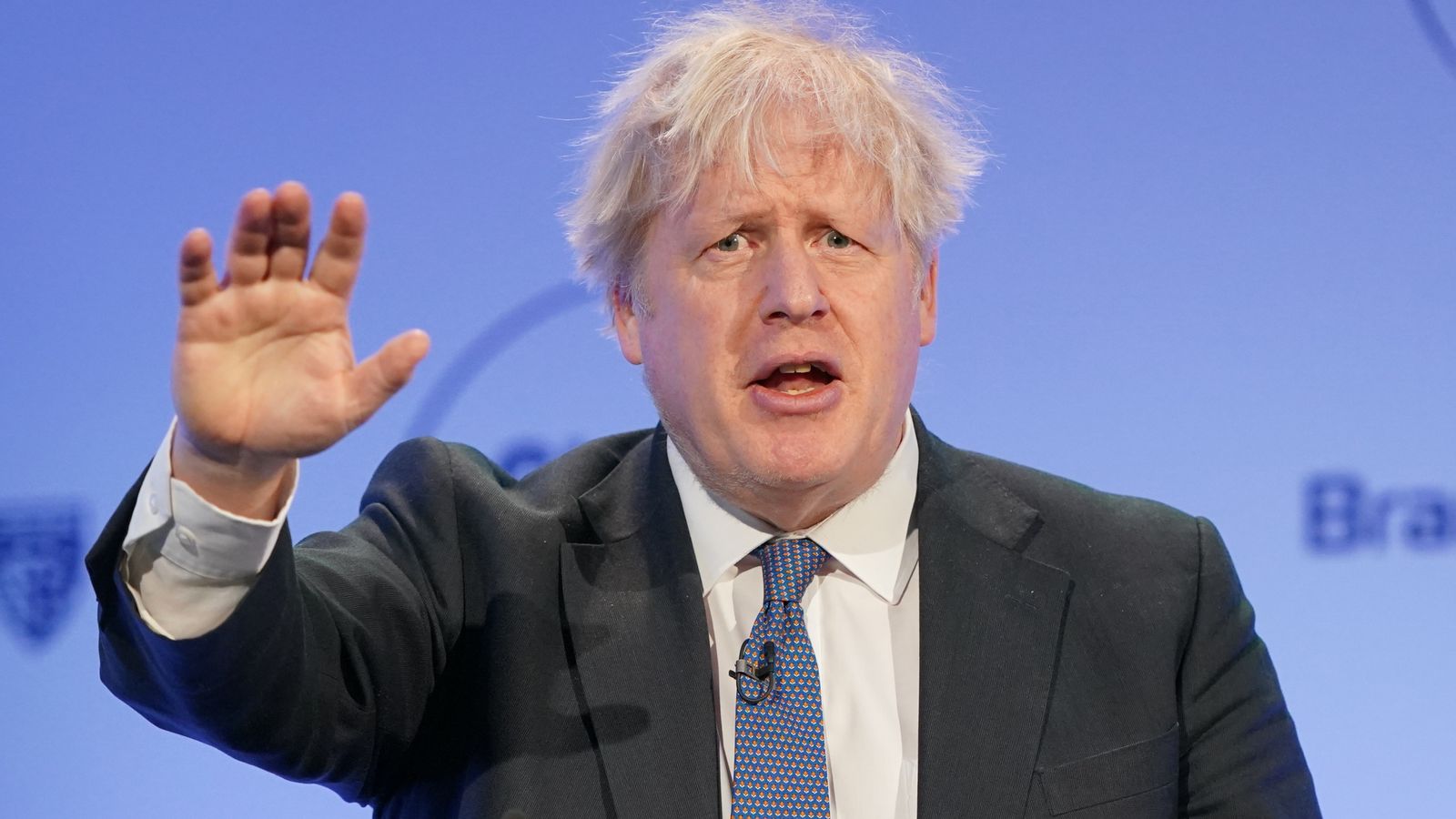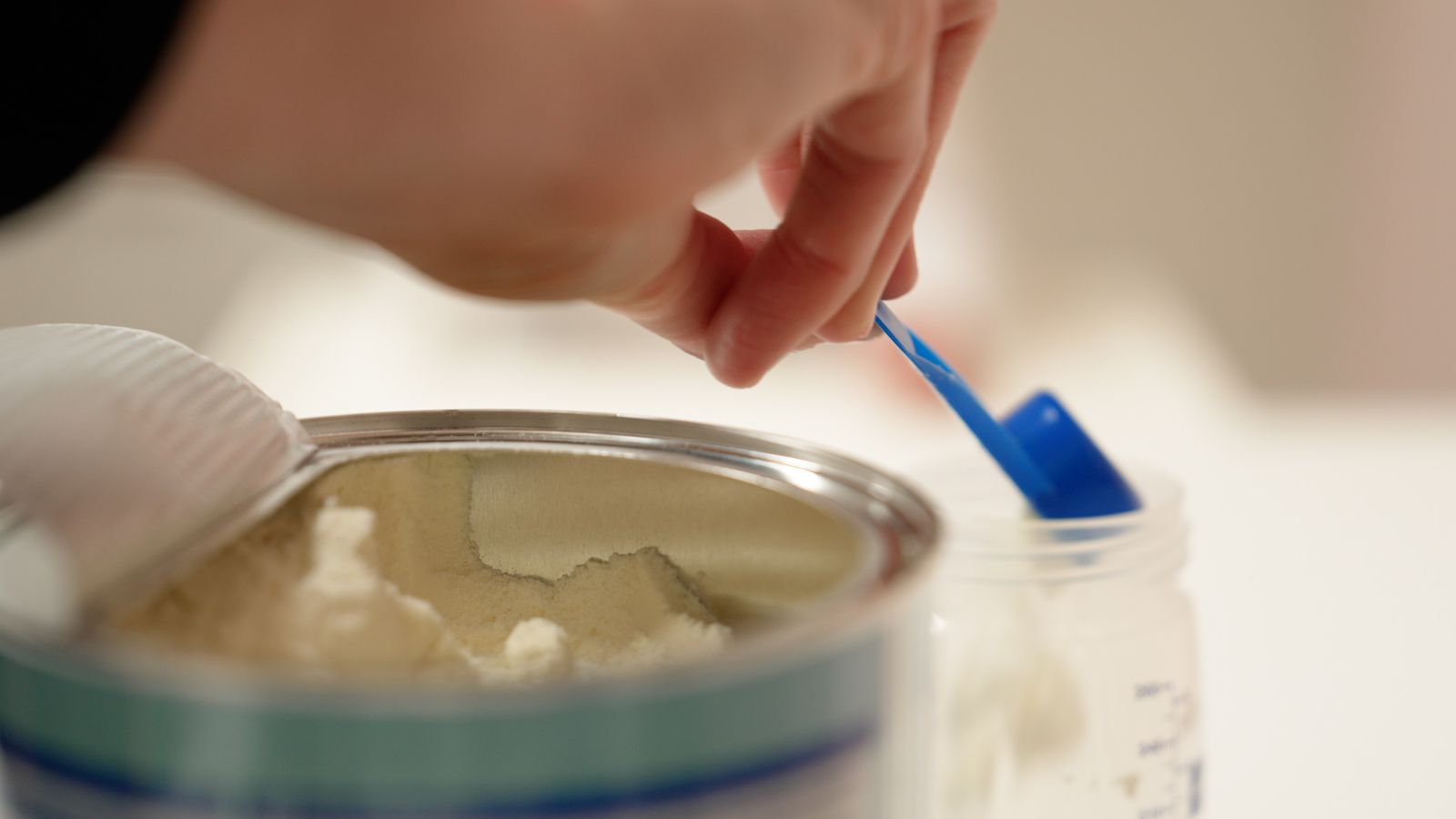Boris Johnson is backing the COVID inquiry’s attempts to see his unredacted messages, after the government attempted to block some of the releases in a High Court challenge.
The former prime minister has told the court case he has “no objections” to the inquiry seeing his entire back catalogue of communications.
On the other side of the debate is the UK government, which wants to be able to decide what messages can and cannot be seen by Baroness Heather Hallett, the inquiry’s chair.
Politics latest: NHS plan is ‘historic and momentous’, says Sunak
Their legal team say the inquiry does not have the legal power to force them to release the messages and other documents, which it says cover matters “unconnected to the government’s handling of COVID”.
Lady Hallet has rejected this, saying the Inquiries Act 2005 gives her the power to decide what is relevant.
The inquiry has said it is up to them to judge which messages were relevant.
Lady Hallet says the government’s attitude “undermines” her ability to carry out her investigation and would have “serious implications” for all public inquiries.
The dispute is now being settled in the High Court, with proceedings expected to conclude on Monday in front of Lord Justice Dingemans and Mr Justice Garnha.
Sir James Eadie KC, representing the government, said the challenge was “brought with some considerable reluctance”, but Lady Hallett’s demand was “so broad” it was “bound to catch” a large amount of irrelevant material.
Read more:
Government accused of COVID inquiry ‘cover-up’
COVID inquiry: What is it and what’s it trying to find?
Be the first to get Breaking News
Install the Sky News app for free
This has the potential to include messages from – and about – people who are now in government, like Prime Minister Rishi Sunak.
Lord David Pannick KC, representing Mr Johnson, said the former PM thinks “it is appropriate that the chair has all documents that she reasonably considers are potentially relevant to her ongoing investigation, and that that is consistent with the objectives of the inquiry, which Mr Johnson announced in May 2021.”
He added: “First, not only does the [inquiry’s] interpretation promote the purpose of the legislation and the inquisitorial nature of public inquiries, it is also consistent with the objectives of this inquiry.
“In establishing the inquiry, Mr Johnson said in terms he wanted the state’s action to be placed ‘under the microscope’ and that the inquiry must be ‘free to scrutinise every document’.
“That is what the public expects and that is what should be done.”
As well as Mr Johnson’s WhatsApp messages, his diaries and other notes are also pieces of evidence the inquiry wants to see.
Click to subscribe to the Sky News Daily wherever you get your podcasts
The evidence has to be submitted through the government as it concerns Mr Johnson’s time in office.
The former prime minister wrote to the inquiry after the Cabinet Office launched the judicial review, saying he was “more than happy” to hand over his unredacted WhatsApp messages and notebooks directly to the inquiry.





